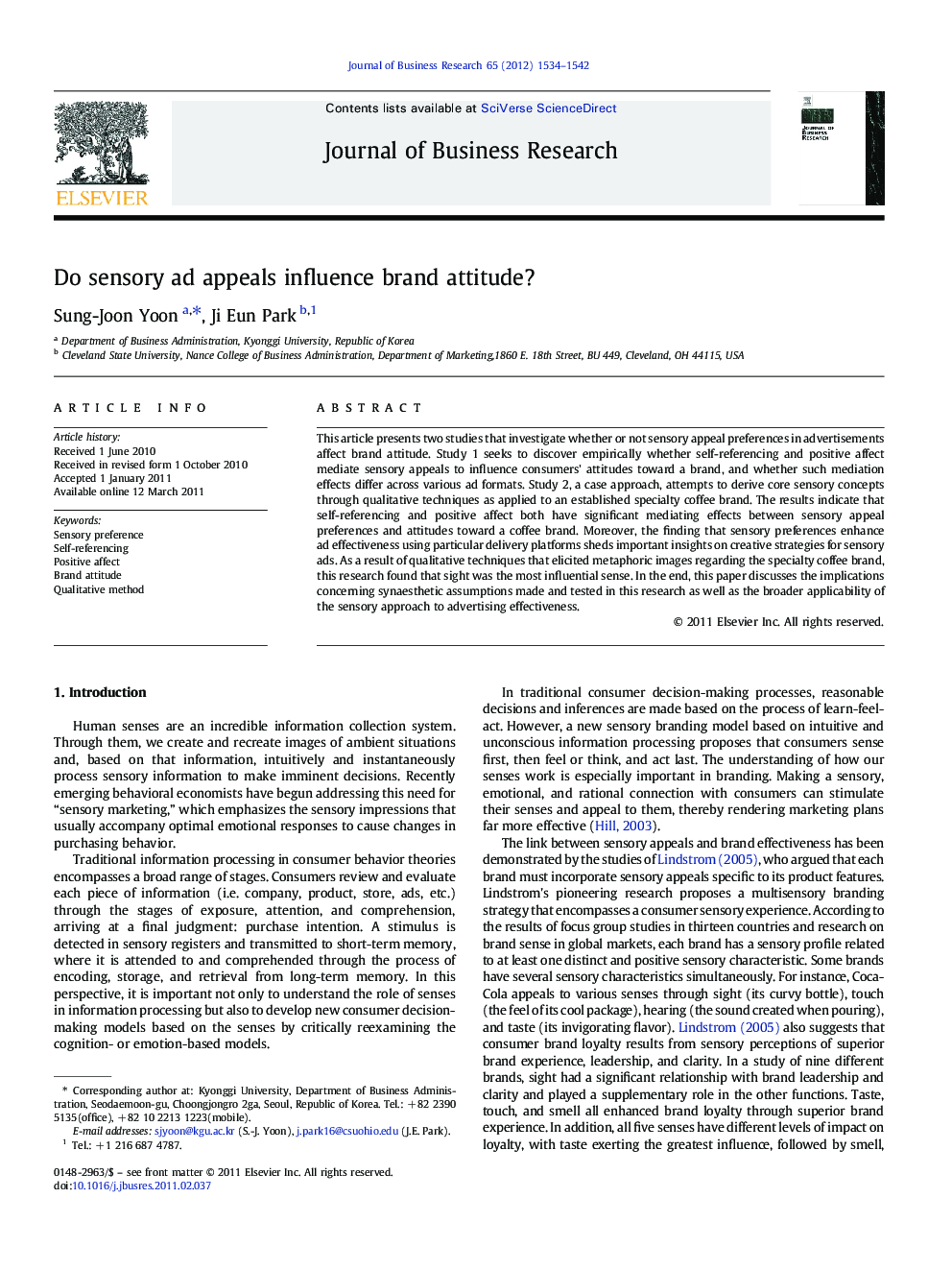| Article ID | Journal | Published Year | Pages | File Type |
|---|---|---|---|---|
| 1017508 | Journal of Business Research | 2012 | 9 Pages |
This article presents two studies that investigate whether or not sensory appeal preferences in advertisements affect brand attitude. Study 1 seeks to discover empirically whether self-referencing and positive affect mediate sensory appeals to influence consumers' attitudes toward a brand, and whether such mediation effects differ across various ad formats. Study 2, a case approach, attempts to derive core sensory concepts through qualitative techniques as applied to an established specialty coffee brand. The results indicate that self-referencing and positive affect both have significant mediating effects between sensory appeal preferences and attitudes toward a coffee brand. Moreover, the finding that sensory preferences enhance ad effectiveness using particular delivery platforms sheds important insights on creative strategies for sensory ads. As a result of qualitative techniques that elicited metaphoric images regarding the specialty coffee brand, this research found that sight was the most influential sense. In the end, this paper discusses the implications concerning synaesthetic assumptions made and tested in this research as well as the broader applicability of the sensory approach to advertising effectiveness.
